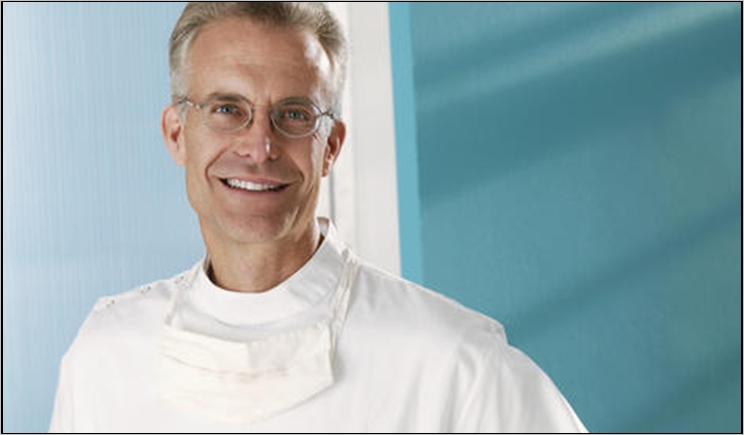
If you’re a dentist looking to retire, the myriad questions that come along with exiting a practice are quite a bit to floss about. More dentists are considering selling part of their practice to a dental service organization (DSO), a corporate entity that handles non-clinical aspects of the business such as payroll and staffing. For those looking for a successor, DSOs offer benefits that are too pearly white to give the brush off.
According to Dr. Jeffrey Pearlman of Fountainhead Dentistry, many more dental practices are going the corporate route. Being a sole proprietor can be challenging for younger doctors who may be put off by the prospect of having to obtain a $500,000 loan to start their practice. That’s not even to mention the cost of equipment such as x-ray machines that can cost over $100,000, as well as technical infrastructure for the office, and on and on.
DSOs are well capitalized, and many are backed by large private equity firms. Because a DSO might own dozens of practices across a large geographic area or multiple areas, it can benefit from bulk purchasing of technology and marketing, as well as the spreading of operational costs. DSOs can upgrade your office décor, equipment, benefits, and online presence, bringing capital and broad knowledge that a solo practice often can’t match.
Also, running a dental practice involves ownership, entrepreneurial risk, legal liability, and hiring and firing employees. You might be better served staying up-to-date on patient care and clinical practices rather than learning the skills required to run a business.
A Big Adjustment
When you sell your practice to a DSO, you get paid upfront for the equity in it. This can give you maximum financial flexibility, rather than a buyout that occurs over many years with a private sale to another solo practitioner. Again, larger DSOs are well capitalized, and they don’t need to get bank loan approval.
Selling to the DSO comes with a price tag, though. Known for its high turnover rates, “franchise dentistry” or “corporate dentistry” isn’t for everybody. If you were to sell your practice to a DSO and remain on as a 1099 employee, be prepared to deal with some toothaches.
For example, the service rendered under a DSO may be more financially motivated than you are accustomed to. These businesses often go strictly by the numbers, which can seem impersonal. This can be a hard adjustment for independent dentists who are used to treating their patients in a highly personalized manner that puts the heart first and the numbers second. Plus, to “make their numbers,” dentists in these practices very often may be encouraged to suggest interventions that they wouldn’t otherwise.
Also, as an employee, you aren’t the one making the decisions anymore. Expect the DSO to dictate how you run your practice. This also is hard for many dentists who have been independent business owners to adjust to. You won’t have control over your staff, your hours, or any other management decisions.
Biting Down
Whichever way you go, there are certain financial guidelines that all dentists should follow when selling a practice.
First, find a cultural fit. Ask yourself if you will be happy with the way that the new dental regime intends to run the business financially. This will impact your patients. Are you going for something more numbers-oriented and profit motivated, or are you looking for a warm, fuzzy feeling?
Second, enlist the service of a buyout advisor. Dr. Pearlman reports that some of his colleagues who went the private equity route found that it didn’t turn out quite as expected. For this reason, we recommend finding an advisor who has the vision to identify challenges in advance.
According to Dr. Alex A. Giannini, founder of the Dynamic Dental Partners Group, “There is a big disparity in a DSO EBITDA (earnings before interest, taxes, depreciation, and amortization) versus an owner-operator EBITDA valuation.” Advisors who do not understand DSOs may set the EBITDA projection too high, possibly compromising the entire transaction.
The Final Drill
Don’t make the mistake of thinking that retirement takes care of itself. As you know, you can’t remove six months of tartar in a half hour! If you own a dental practice and are considering transitioning it, contact me for an objective opinion of whether or not a DSO is a good match for you.
Ms. Coyne, CFP, is a strategic wealth adviser with Raymond James Financial Services Inc, Member FINRA/SIPC, in Hagerstown, Md. With more than 15 years of experience, she helps doctors make smart financial decisions so they can focus on what they do best. She can be reached at karen.coyne@raymondjames.com or (301) 739-7002. Any opinions are those of Karen Coyne, CFP, and not necessarily those of RJFS or Raymond James. Links are being provided for information purposes only. Raymond James is not affiliated with and does not endorse, authorize or sponsor any of the listed websites or their respective sponsors. Raymond James is not responsible for the content of any website or the collection or use of information regarding any website’s users and/or members.
Related Articles
NJ Supreme Court Decision Has Implications for the DSO Industry
Dentistry Faces a New Economic Climate
Build Your Dental Career Around Your Personality











